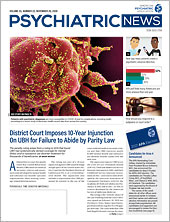The authors of the Declaration of Independence unequivocally expressed their desire for Americans to possess the following unalienable rights: life, liberty, and the pursuit of happiness. Since the inception of slavery, we have witnessed the dichotomy between White America and Black America. One America has been like a sloth in recognizing its privilege and fragility. The other America continues to utilize the resilient knee in pursuit of the rights that were never intended for them to treasure.
I am a part of that America, whose community has been incessantly scolded for what many would consider unconventional forms of protests. We have been referred to as thugs and unpatriotic. These inflammatory remarks coupled with the innumerable modern-day lynchings of Black people contribute to the mental wear and tear of the Black knee that yearns for harmony and reconciliation. It has led me to ask the following question: How is a Black person in America supposed to protest?
I have asked this question of my White brothers and sisters during countless encounters. It usually evokes a sense of discomfort and avoidance. I leave these encounters feeling discouraged and exasperated due to a lack of acknowledgment that there is a tale of two Americas with two sets of rules and outcomes. I cringe at the thought of continuing down this road of unequal treatment for our communities who desire peace and justice. The harsh reality for Black America is that to protest means that we are ungrateful to the modern-day slave masters that supposedly feed and clothe us. Our knees remain shackled by the system that is repulsed by our Black skin. We are “encouraged” to stay in our lane or, better yet, “Shut up and dribble.”
Our mental health continues to be compromised due to the inability to protest peacefully without people who have not walked in our shoes spewing insensitive commentary that leaves our knees hollow and lifeless. We are expected to have a glowing countenance in our workplaces despite the racial unrest that is unremitting. Perhaps the more appropriate questions directed toward my White counterparts should be the following: When will your communities view us as humans that desire the same privilege and rights you enjoy? When will you help relieve the pressure from our knees that are becoming arthritic from daily protests due to structural racism? When will you view us as more than Black bodies that provide entertainment?
The mental wear and tear of the Black knee has an opportunity for rehabilitation and recovery. However, it rests on the shoulders of an America that is in need of introspection, reform, and humility. The America I seek is one where there is no division. The America I seek is one that sincerely embraces the diversity of its citizens to protest using various joints and appendages to bring about change. The America I seek is one where knees will coalesce in the fight for life, liberty, and the pursuit of happiness. ■

